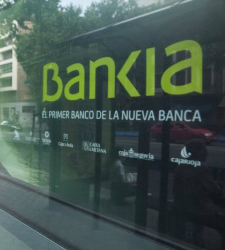
Deleveraging is an ugly word. Its consequences are even uglier. At the start of a crisis, the families and businesses´credit drops to minimum levels. On one hand, all of these are households problems. They still have to reduce their debt while access to credit decreases and adjustments in salaries and incomes continue to erode their purchasing power.
In addition, the euribor maintains its upward path. The rising of two points in the VAT and the end of housing tax relief caused many homes to be purchased ahead of time, and the rest of the demand will have to wait until prices fall further. It appears that there will not be many mortgages applications, especially if the law that protects embargoed families get approval, since it will increase mortgage insurances costs.
On the other hand, companies fail to get loans to develop new businesses. Banks are still experiencing some troubles financing themselves in the markets and can only get funding through deposits at skyrocket prices.
On top of that, banking industry is subdued to new government regulation that requires them to raise more capital when there is a real scarce of liquidity. We must not forget that, during the last three years, banks have done enormous efforts to contain its clients to default.
It´s not time to celebrate if we take in consideration they also reduce their size through costly layoffs and have to return the taxpayers money borrowed during the financial crisis. At the end, when a bank IPO, as Bankia´s, is launch in uncertain times and is threatened also by new stress tests maybe we will find more than one negative surprise.
Translated and Edited in English by Jose L. De Haro